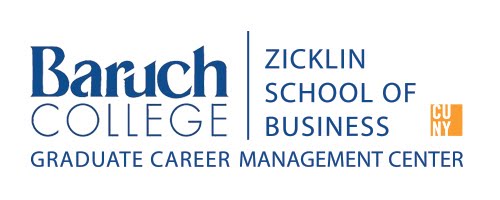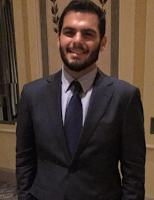 |
| MS Information Sytems Anh Nguyen |
MS Information Systems student Anh Nguyen connected with Baruch alumnus Joe Nelson (BBA ‘10 Finance and Investments. Minor: Computer Information Systems) to talk about his work in finance, some of the key skills he uses in his work and other thoughts on how he got to where he is.
What have you been doing since graduation (where you’ve worked, changing interests/positions/companies, etc.)?
I've worked at a few different companies across the buy side and sell side, in both technology and business-side roles. My main focus has been on electronic and algorithmic trading, and associated functions such as quantitative research, transaction cost analysis, and market microstructure.
What do you think are some key lessons or skills for someone specifically trying to work in technical operations in finance?
 |
| Joe Nelson BBA '10 Finance and Investment |
What general qualitative skills are financial firms looking for?
In trading specifically, we are working on the scale of nanoseconds and microseconds, so above all, a sense of urgency and strong time management/prioritization are important. You need to be able to navigate high-pressure situations and properly triage problems as they appear. On a similar note, communication skills are also needed. You have to know your audience, present your points clearly and concisely, distill and break down concepts that might be highly technical or financial in nature, and get the appropriate messages across. Finally, being eager and willing to learn is another soft skill that will help your career. Financial services is a constantly changing industry, whether it's through regulatory reform, technological advances, or other outside factors. Staying up-to-date on these changes will help you in your daily role and will keep your resume and experience competitive if you want to make a career move.
You have a couple certifications related to trade execution. What prompted you to pursue these and what role have they played in your career?
I hold a number of FINRA Series licenses related to securities trading, and risk management and compliance. These were sponsored by my employers, and are needed for performing some of my daily tasks. For example, the Series 57 license is for equity trading, and I use this regularly to execute trades across both cash equities and associated derivatives. Additionally, the Series 24 license makes me a registered principal of the firm, and comes in handy for risk and compliance. I use this when I am reviewing new trading strategies or changes to existing trading strategies, when I am modifying risk and exposure limits, when I am monitoring margin or other capital-related matters, or when I am representing the firm in discussions with exchanges or regulatory bodies.
How do you approach networking and how valuable is it to create your own network?
I look at networking more as a way to cultivate relationships and knowledge, versus simply using it as a way to get my resume in the door at a company I'd like to work for. I think it's very valuable to create a network of long-term, deep relationships with people who have similar career paths and who can share their experiences and lessons learned with you. Most of all, it's important to let your own skills and experience speak for themselves. One of my career moves was made possible through a connection in my network with whom I had collaborated extensively in the past. She knew what I brought to the table and was able to make a strong argument for bringing me in for an interview and ultimately extending me an offer.
What preparation work do you do for interview or meeting with potential employers?
Aside from knowing my resume front to back, I make sure to do my homework on the company - who they are, how and what they trade and invest in, any recent news or major changes to the company, and any competitive advantages they may have versus other companies in the same space. This helps to answer the questions like "Why do you want to work here?" and "What do you know about our firm?", while also giving you a better idea of what kind of product or technical questions they might ask. Another important prep item is to come up with follow-up questions on both the company and the specific role. This is your chance to decide whether the job and firm are a good fit for you. Your interviewers are trying to discern whether you are the best candidate to fill an opening, but you need to have as much information as possible to determine if the position fits into your medium- to long-term career goals as well.
How did your curriculum at Baruch set you up for success in your career?
My coursework at Baruch - a major in Finance and Investments, coupled with a minor in Computer Information Systems - gave me a broad base of knowledge on both the business and technical aspects of the career path I've been on for the last seven years. Courses such as Investment Analysis and Corporate Finance broke down the core financial concepts that I encounter on a regular basis, and my CIS classes focusing on Excel and programming were primers for the quantitative skills that I use to parse data and automate daily tasks. Outside of the classroom, involvement with events and organizations on campus helped me to network with students and professionals, fine-tune my resume and interviewing skills, and learn more about various aspects of the industry.









